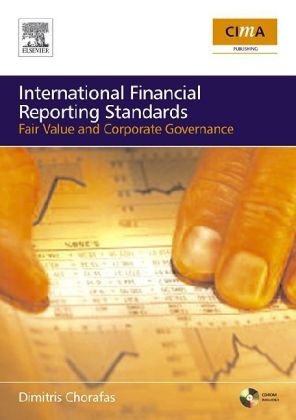Read more
Informationen zum Autor Since 1961, Dr Dimitris N. Chorafas has advised financial institutions and industrial corporations in strategic planning, risk management, computers and communications systems, and internal controls. A graduate of the University of California, Los Angeles, the University of Paris, and the Technical University of Athens, Dr Chorafas has been a Fulbright scholar. Financial institutions which have sought his assistance include the Union Bank of Switzerland, Bank Vontobel, CEDEL, the Bank of Scotland, Credit Agricole, Österreichische Länderbank (Bank Austria), First Austrian Bank, Commerzbank, Dresdner Bank, Mid-Med Bank, Demir Bank, Banca Nazionale dell'Agricoltura, Istituto Bancario Italiano, Credito Commerciale and Banca Provinciale Lombarda. Among multinational corporations Dr Chorafas has worked as consultant to top management, are: General Electric-Bull, Univac, Honeywell, Digital Equipment Corp, Olivetti, Nestlé, Omega, Italcementi, Italmobiliare, AEG-Telefunken, Olympia, Osram, Antar, Pechiney, the American Management Association and host of other client firms in Europe and the United States. Dr Chorafas has served on the faculty of the Catholic University of America and as visiting professor at Washington State University, George Washington University, University of Vermont, University of Florida, and Georgia Institute of Technology. Also, the University of Alberta, Ecole d'Etudes Industrielles de l'Université de Genève, and Technical University of Karlsruhe. More than 6,000 banking, industrial and government executives have participated in his seminars in the United States, England, Germany, other European countries, Asia and Latin America. Klappentext Written for managers and professionals in business and industry, this book helps the reader in: * Understanding what is and is not IFRS * Learning the complexities of IFRS implementation * Appreciating the contribution of IFRS to corporate governance The changeover from the mosaic of different heterogeneous national accounting standards to the International Financial Reporting Standards has not been easy. For many companies IFRS, and most particularly the concept of fair value in IAS 39, has amounted to a phase shift - which is prerequisite to achieving compliant financial reporting. The research conducted by Dr. Chorafas for this book, documented that the process of meeting IFRS requirements presents opportunities and challenges to all enterprises. As many companies have found out, abandoning the classical accruals accounting for marking-to-market their transactions and portfolio positions, has not been easy. The conversion process has affected several functions within the organization including balance sheets, P&L statements, auditing, risk control, information systems, and management accounting. This book is in made up of four parts: * Part One focuses on business competition, standards boards, corporate accounting, and IAS 39 * The theme of Part Two, is the implementation of IFRS, exemplified through case studies on task forces and practical applications * Part Three brings together IFRS and management accounting requirements, with emphasis on fair value. * Part Four addresses itself to the contribution IFRS can make to better corporate governance, and to rebuilding the balance sheet The book has many case studies based on actual experiences. These range from the implementation of IFRS directives such as hedge accounting, to developing practices of real-time balance sheets; the help provided by sophisticated accounting solutions help in stress testing; and a comprehensive definition of the role of the audit committee. Zusammenfassung Suitable for managers and professionals in business and industry! this book helps the reader in: understanding what is and is not IFRS; learning the complexities of IFRS implementation; and! appre...

